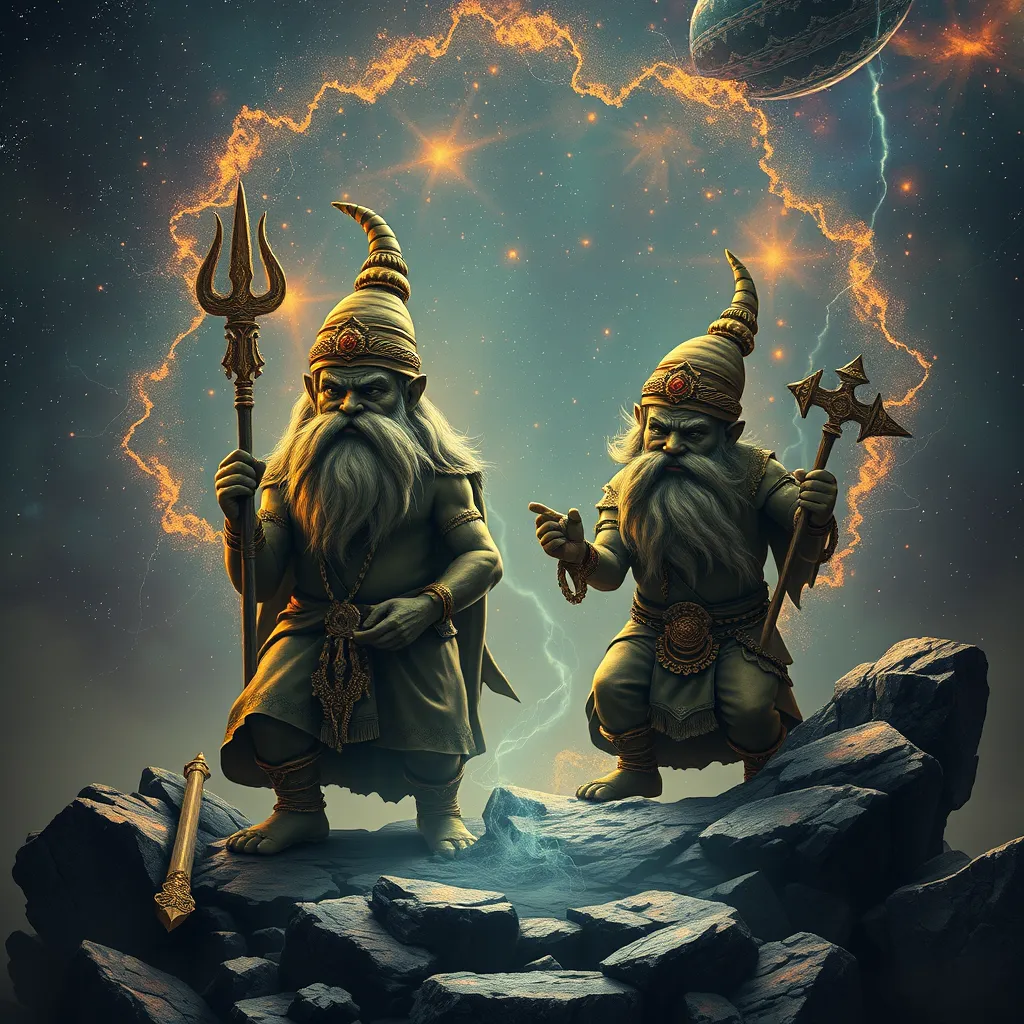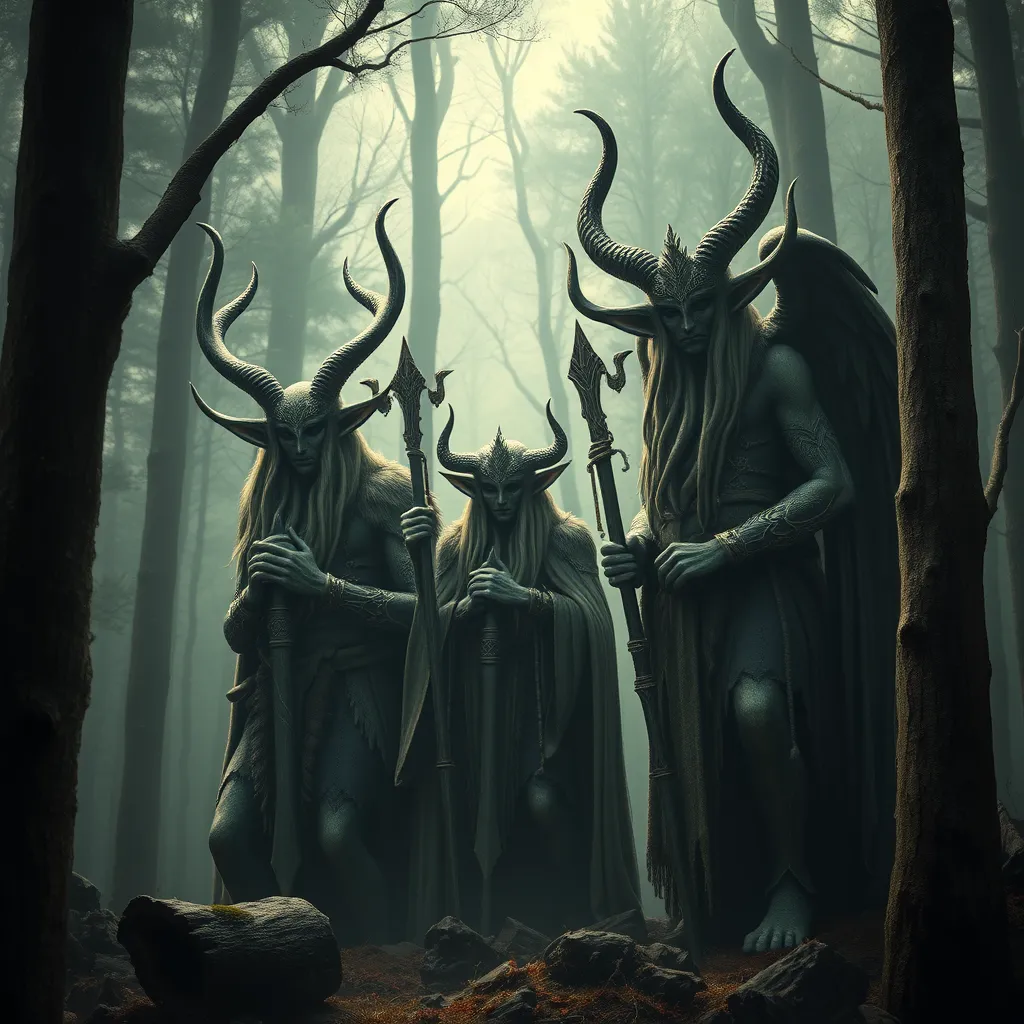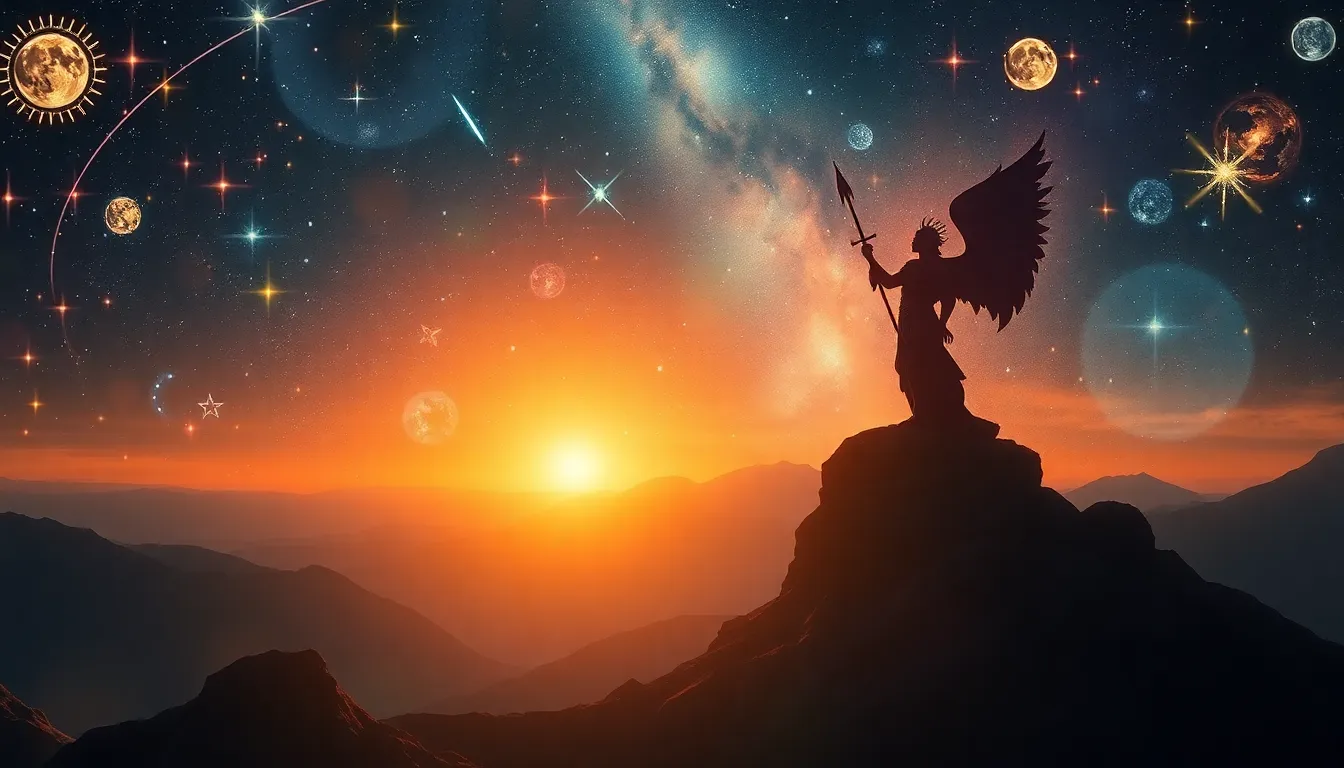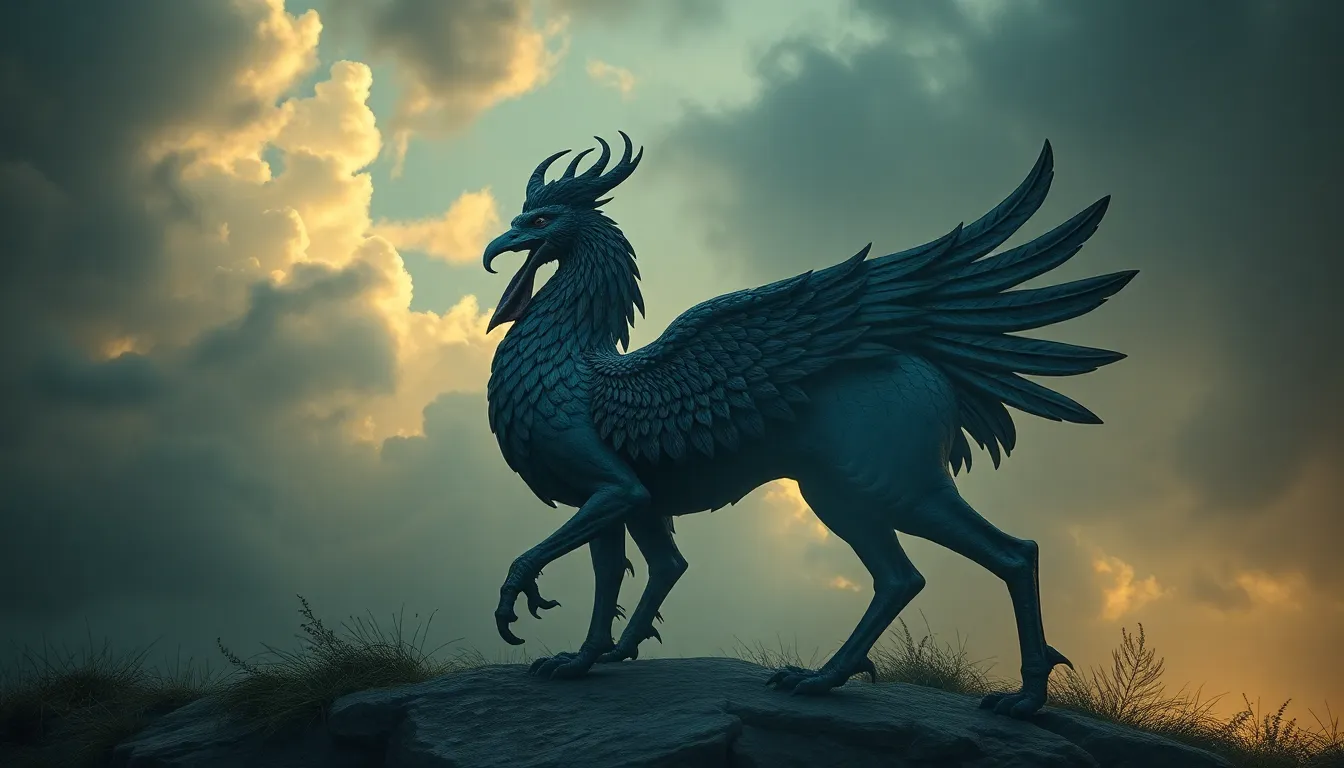The Dwarves of the Stars: Exploring the Connection of Dwarves to the Cosmic Realm in Indian Mythology
I. Introduction
The concept of dwarves in Indian mythology is rich and multifaceted, intertwining with various aspects of culture, spirituality, and cosmic beliefs. These mythical beings are often depicted as short in stature but grand in significance, serving various roles within the narratives of Indian epics. They embody a connection to the cosmic realm, reflecting the universe’s complexity and the forces that govern it.
The cosmic realm holds a vital place in mythological narratives, influencing how cultures perceive their existence and the universe. In Indian mythology, dwarves are not just characters in stories; they are symbolic representations of cosmic principles and forces. This article aims to explore the intricate connection between dwarves and the cosmic realm in Indian mythology, shedding light on their roles, symbolism, and cultural significance.
II. The Mythological Framework: Dwarves in Indian Texts
A. Description of Dwarves in Various Indian Epics
Dwarves appear in several Indian texts, from the ancient Vedic scriptures to the great epics such as the Mahabharata and Ramayana. They are often portrayed as wise and skilled beings, possessing deep knowledge of the cosmos and nature.
- Mahabharata: Dwarves are featured in tales of ancient heroes and divine interventions.
- Ramayana: They play significant roles, often assisting protagonists in their quests.
- Puranas: Dwarves are mentioned as beings created by the gods, often tasked with protecting sacred knowledge.
B. The Role of Dwarves in Hindu, Buddhist, and Jain Traditions
In Hinduism, dwarves are often viewed as guardians of sacred knowledge and cosmic order. In Buddhism, they may represent the earth and physicality, while Jain traditions depict them as symbolic figures representing asceticism and spiritual achievement. Each tradition adds a unique layer of meaning to the concept of dwarves.
C. Symbolic Interpretation of Dwarves
Dwarves symbolize various attributes, including:
- Wisdom: Their knowledge of the cosmos reflects the pursuit of understanding.
- Protection: They are seen as guardians of sacred spaces and cosmic forces.
- Transformation: Dwarves often undergo changes, symbolizing the journey of the soul through different cosmic states.
III. Cosmic Significance of Dwarves
A. Dwarves as Guardians of Cosmic Forces
Dwarves hold a crucial position as protectors of cosmic balance. They are often portrayed as beings who maintain the equilibrium between different forces of nature and the universe. Their small stature belies their immense power and responsibility, emphasizing that true strength lies in wisdom and understanding.
B. Connections to Celestial Bodies and Astronomical Phenomena
Many dwarves in Indian mythology are associated with celestial bodies, linking them to stars, planets, and other astronomical phenomena. This connection is often depicted through their actions and the myths surrounding them, suggesting a profound relationship between these beings and the cosmos.
C. The Role of Dwarves in Creation Myths
Dwarves often feature in creation myths, acting as agents of creation or preservation. They may assist in the formation of the universe or be responsible for maintaining the cosmic order after creation, symbolizing the cyclical nature of existence.
IV. Dwarves and Their Celestial Associations
A. Notable Dwarves and Their Cosmic Links
Some notable dwarves in Indian mythology include:
- Vamana: An avatar of Lord Vishnu, he represents cosmic balance, often depicted as a dwarf who expands to encompass the universe.
- Baladhvaja: Associated with the earth and nature, he symbolizes the grounding aspects of the cosmos.
B. Analysis of Dwarvish Attributes and Their Cosmic Symbolism
The attributes of dwarves often reflect cosmic principles. For instance, their wisdom symbolizes the pursuit of knowledge, while their roles as guardians highlight the importance of balance in the universe.
C. Influence of Star Constellations on Dwarvish Legends
Many legends surrounding dwarves are influenced by star constellations. Their stories often align with seasonal changes and celestial events, reinforcing the connection between earthly beings and the cosmos.
V. Dwarves in Folklore and Oral Traditions
A. Regional Variations of Dwarvish Tales Across India
Dwarves are present in various regional folklores across India, each with unique interpretations and narratives. From the folklore of the Himachal Pradesh hills to the coastal tales of Tamil Nadu, dwarves embody local cultural elements while maintaining their cosmic significance.
B. The Intersection of Folklore and Cosmic Beliefs
The tales of dwarves often intersect with local beliefs about the cosmos, reflecting how different communities perceive their relationship with the universe. These stories serve as a bridge between the earthly realm and cosmic phenomena.
C. The Impact of Dwarvish Myths on Local Cultures
Dwarvish myths have a lasting impact on local cultures, influencing art, literature, and festivals. They serve as reminders of the interconnectedness of life and the cosmos, shaping cultural identities and values.
VI. Comparative Mythology: Dwarves in Global Context
A. Similarities Between Indian Dwarves and Dwarves in Other Cultures
Dwarves appear in various cultures worldwide, often with similar attributes and roles. These similarities highlight universal themes of cosmic connection and the roles of smaller beings in maintaining balance.
B. Universal Themes of Cosmic Connection in Dwarvish Myths
Across cultures, dwarvish myths often emphasize the importance of wisdom, protection, and the relationship with the cosmos. These universal themes resonate with humanity’s quest for understanding the universe.
C. Lessons from Comparative Analysis
Comparative mythology offers insights into how different cultures interpret dwarves and cosmic themes. It reveals the shared human experience of seeking meaning in the cosmos, highlighting the interconnectedness of all mythologies.
VII. Modern Interpretations and Cultural Relevance
A. Dwarves in Contemporary Indian Literature and Media
In contemporary literature and media, dwarves continue to be reimagined, often reflecting modern concerns and themes. They appear in fantasy genres, symbolizing resilience and the quest for knowledge.
B. The Ongoing Influence of Dwarvish Myths on Indian Culture
The myths of dwarves remain relevant, influencing festivals, art, and local traditions. They serve as cultural touchstones, reminding communities of their cosmic connections.
C. Reimagining Dwarves in the Context of Modern Cosmology
As modern cosmology expands our understanding of the universe, dwarves can be reinterpreted in light of new scientific discoveries, bridging the gap between ancient wisdom and contemporary knowledge.
VIII. Conclusion
A. Summary of Key Findings
This exploration of dwarves in Indian mythology highlights their deep connection to the cosmic realm, emphasizing their roles as guardians, symbols of wisdom, and links to celestial phenomena.
B. The Enduring Legacy of Dwarves in Indian Mythology and Beyond
Dwarves continue to inspire and resonate within Indian culture and beyond, serving as reminders of the intricate relationship between humanity and the cosmos.
C. Final Thoughts on the Cosmic Connection of Dwarves
The cosmic connection of dwarves in Indian mythology invites contemplation on our place in the universe, encouraging a deeper understanding of the forces that shape our existence and the stories we share across cultures.



